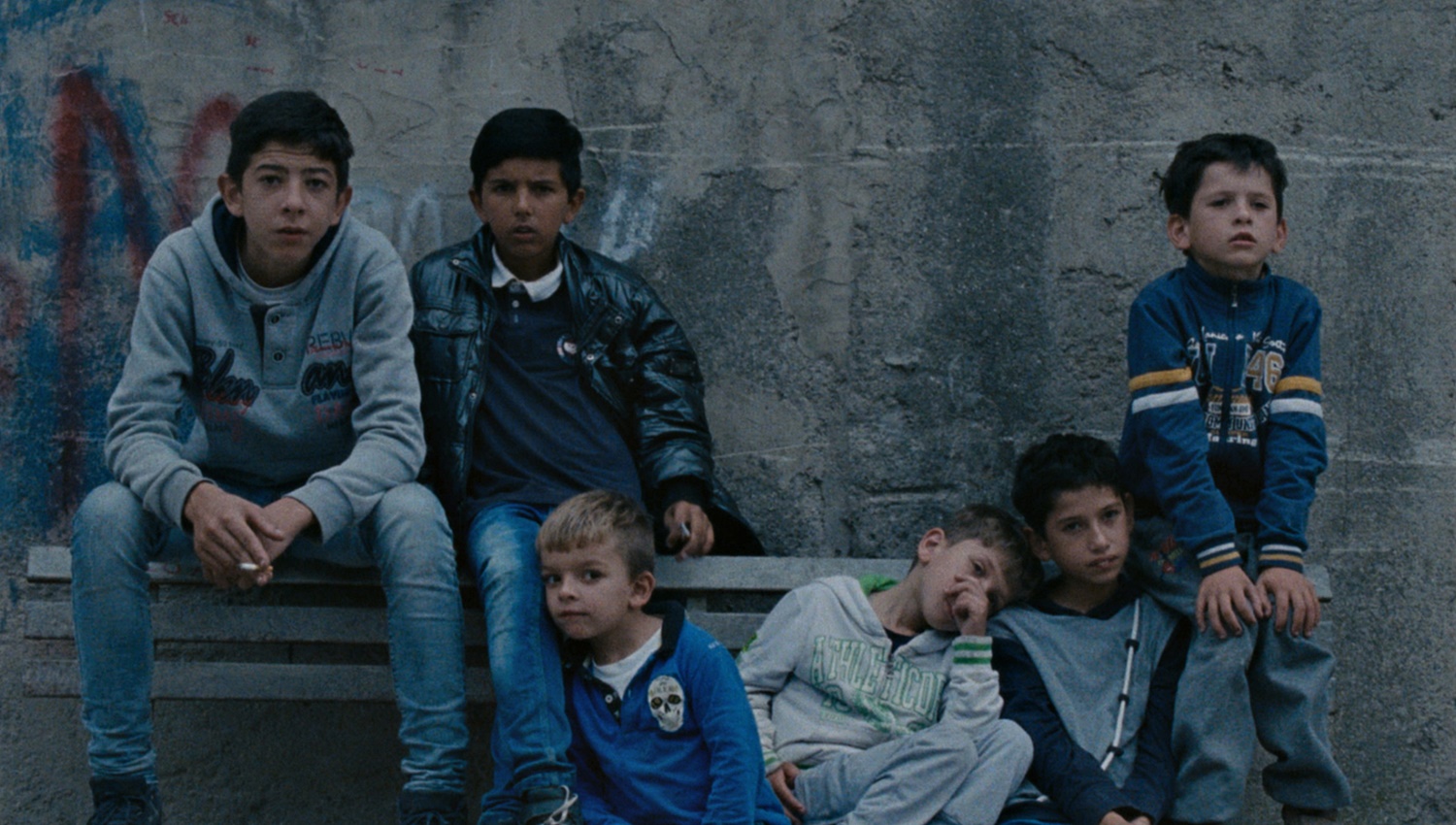
A Ciambra
Dustin Chase
Five-year-old smoking cigarettes. Even in the confines of Jonas Carpignano’s latest film, is still a disturbing sight. A Ciambra is the curious and odd official selection from Italy for the 90th Academy Awards foreign film submission. The young filmmaker takes the audience into a world of disadvantage where a family of Gypsy’s live a life of crime to survive the rural slums of southern Italy. A Ciambra is a complete contrast with Call Me By Your Name, which is set in the privileged life of northern Italy. Both films center around a young male lead, coming into his own, but here 14-year-old Pio is a criminal who wants nothing more than to be respected as one of the men of the family.
The Carabinieri discover the family has been illegally using electricity, they are slapped with thousands of dollars in fines. Pio’s father and brother are imprisoned leaving his stout mother and the sisters to provide. Pio (Amato) has been a leech on his brother for years, learning how to steal cars and escape even the toughest situations. Now he disobeys his mother and tries to earn money the family needs to survive. The only race looked down on worse than Gypsy’s are the Africans, but Pio makes friends with Ayiva (Seihon) who often helps him out of tricky situations. The confidence of turning over money to his surprised mother every few days instills a confidence into the teenager that leads him down a dangerous path.
With little exposition outside Pio’s world, the young actor can’t really maintain the attention needed to stay interested in this story.
The film is told singularly from the point of view of Pio. The story follows him through the dangerous and thrilling, to the simple and mundane. The viewer feels many things watching A Ciambra, but pity is the resounding theme here. Time and time again we watch Pio, desperate to be something more than a child, struggle between what a kid does in his world, versus what’s thought to be a man, in the Gypsy community. At two hours, the misadventures of this slumdog run long and tiresome. With little exposition outside Pio’s world, the young actor (who I assume is actually over 18 by what happens at the end of the film) can’t really maintain the attention needed to stay interested in this story.
There is however a beautiful sequence near the end of the second act, equally haunting and confusing, where the teen spots a horse walking though the dusty streets. This moment correlates with his ancestors and the film’s prologue. A Ciambra confronts the reality that ‘we are what we are taught’. Pio’s parents condemn him for stealing from the Italians, yet they have never taught him manners or responsibility, because they too were never taught. “Let’s go steal together,” the brothers say, almost as a right of passage. 33-year-old Carpignano adapted this feature film from his short of the same name. He received an Indie Spirit Award nomination for best director, the films only nomination, knocking out Greta Gerwig for Lady Bird.
Final Thought
A tedious exploration of Gypsy culture through the eyes of a child.
